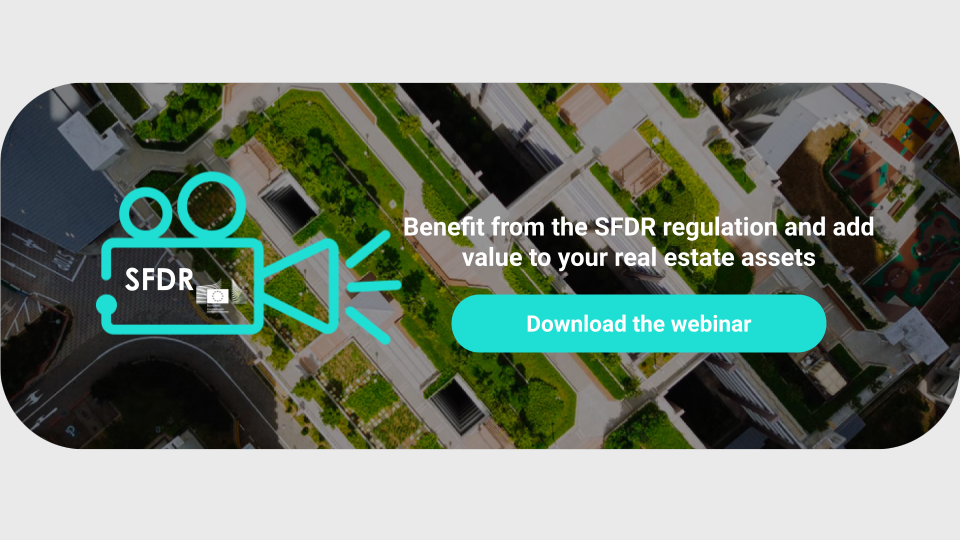A collaboration between Clémentine Tanguy and Maya Fink
The History of Climate Awareness
To understand the future of ESG means to understand what motivated the assumption of these protocols in the first place. Before the 1960s, there wasn’t much attention paid to the way human actions were impacting the environment. However, the 1972 United Nations Conference in Stockholm commenced cooperative actions toward the environmental disasters that had started coming to light during that time. It became the first instance of leadership taken towards sustainable development and the finding of necessary solutions. In 1972, the launch of Apollo 17 brought back an image of our earth, sparking motivation to take care of our blue floating marble.
After its release in December 2015, the Paris Climate Agreement aimed to reduce global gas emissions that contribute to global warming. The agreement was meant to replace the original Kyoto Protocol that was set out to prevent global temperatures from rising over 2C (3.6F) – the treaty dating back to the 1992 Earth Summit in Brazil which set out to strengthen regulations in developed countries for emission reduction. The protocol was largely considered ineffective considering that at the time, the two largest CO2 emitters – the USA and China chose not to participate. In 2012 at the 18th Conference of the Parties (COP18), the Kyoto Protocol was extended to 2020, and a pledge was created to legally bind the climate treaty in hopes of successfully reducing CO2 emissions as well as other greenhouse gasses.
Before the Paris meeting in 2014, the UN tasked countries to create detailed plans on how they intended to meet the new expectations, and by December 10th, 2015, 185 countries had submitted measures to limit their emissions by 2030. From these countries, the USA (thanks to Barack Obama), had set out to reduce emissions by 26-28% by 2025, and China set a target of lowering CO2 emissions per unit of gross domestic product by 60-65%.
Finally, on December 12th, 2015, French Foreign Minister Laurent Fabius made the official announcement of the adoption of the Paris Climate Agreement. The agreement outlined the foreign funding negotiated, as well as the general aim of lowering the global temperature by well over 2C (3.6F). It also largely emphasized cooperation, transparency, flexibility, and regular reporting of progress. On November 4th, 2016 the act was entered into force when 55 parties accounting for the largest sum of greenhouse gas emissions had agreed to sign.
In 2018 Swedish 14-year-old Greta Thunberg gave a powerful speech at the United Nations COP24 in Poland that questioned leaders’ decision-making processes in relation to climate risks. Her speech echoed the cries of the younger generations who had been beginning to notice the dire need to implement pragmatic changes in order to secure the health of the earth’s future. The topic of climate change and environmental sustainability had become unignorable in the last few years, paving new opportunities for baby boomers and millennials to take stronger strides in the world of business ventures.
The Paris Agreement
At the time of the new environmental protocol, there was nothing but a vague goal to “promote compliance”, but now in 2022, the Paris Agreement has evolved greatly, incorporating not only large-scale initiatives but thorough action plans that detail strategies needed to implement to achieve the original climate goal. As we enter a new era of global pandemics, climate change, and global water crisis, the sustainability of our planet is hindered by our progress – we have an urgent responsibility to reinvent our strategies to avoid just “talking the talk” and ensure we “walk the walk”.
Since real estate is responsible for more than ⅓rd of global CO2 emissions, incentivizing key players by focusing legislation on codes of conduct, local laws and taxes have become a huge step forward in the right direction. But these measures haven’t proved to be enough to keep global temperatures at a sustainable level. It’s clear that investors themselves (along with tenants) will be the primary push force behind decarbonizing commercial real estate. Increasing regulations can help pressure investors to measure and report (as well as publicly disclose) the energy, water, waste, carbon emissions, and climate change risks associated with their assets. With these necessary practices motivated by regulatory developments, low-carbon economies could bloom and motivate an increase in policies that ensure a positive impact in the near future.
The ESG Regulations Right Now
With the increase in competitiveness for capital investors and foreign exchange, implications for larger businesses on transparency rules could account for a large percentage of the impact attempted to achieve. With the Sustainable Finance Disclosure Regulation (SFDR), the EU Taxonomy, and the Corporate Sustainability Reporting Directive (CSRD) – three of the largest regulatory bodies governing ESG initiatives and reporting – Europe has arguably the most detailed and comprehensive regulations in the ESG real estate division. The EU strives to become the first continent to reach net-zero, implementing stricter measures that mandate ESG progress disclosure. To comply with the various deadlines, investors need to consider high-quality ESG research, and data collection methods in order to create solid and effective action plans alongside partners like Deepki.
Learn more on Deepki services
The requirements under the Paris Agreement are crucial to prevent further climate catastrophes. Strategies for compliance require innovation, strategic development, and construction of new buildings as well as the retrofitting of existing ones. As the new generations of consumers and politicians demand the need to consider climate change, regulations are becoming increasingly celebrated. Corporate transparency of ESG scores is pertinent for making proper financial advances that successfully lower greenhouse gas and CO2 emissions.
See also: A comparison of regulations, certifications, labels, and ESG scoring in Europe
Once these rules are concrete, companies operating in the EU will be required by law to disclose a large sum of data that includes environmental, social, and governance – the underlying subjects of ESG. Additionally, companies will be asked for strategies detailing the procedures for achieving ESG benchmarks related to climate change.
See also: How do I comply with the EU Taxonomy?
International Waters
Donald Trump’s announcement on November 4th, 2020 of the country’s exit from the Paris Agreement had sparked fears about the prosperity of the climate initiative, the worry mirroring the fruitless attempt of the Kyoto Protocol. Although the absence was short-lived (the presence was reinstated on the first day of Joe Biden’s term in 2021), the event emphasized the importance of countries that make up large amounts of CO2 and green gas emissions to take action, especially if the goal is to keep global temperatures at a sustainable level to ensure the planet’s longevity. Although North America is ways behind Europe in terms of ESG regulations, there are factors that motivate even the most headstrong countries.
Due to international investors with global investment portfolios, there has been an increase in demand for ESG reporting. In November 2021, the International Sustainability Standards Board (ISSB) announced a comprehensive global baseline disclosing ESG reporting standards to provide investors a safeguard for making informed decisions that take into account sustainability-related risks. Currently, the USA and Canada haven’t yet incorporated any mandatory requirements for ESG reporting, but both countries have announced that action will be taken in the following years to ensure compatibility with the increased competition in the global market.
Moreover, legal litigation against non-compliant investors has more than doubled since the Paris Act was initiated in 2015. Legal actions only highlight that holding large companies and even government bodies accountable for taking progressive actions to protect against climate change has become increasingly in favor. As ESG consciousness grows, international pressure is becoming more significant. International investors should begin to consider the risk associated with low ESG scores such as assets losing value and becoming stranded, brown discounting of their real estate investments, and even the loss of credibility for those who fail to be transparent.
See also: The growing risk of stranded assets
On June 30th, 2022, the EU agreed to negotiate a text of the Corporate Sustainability Reporting Directory (CSRD) which would take effect by 2024-2026. If adopted, the CSRD would expand ESG disclosure to include more factors as well as apply to non-EU companies. It is projected that both EU and non-EU entities would be required to consolidate a variety of ESG topics – it can only be assumed that once governments, cross-globally, begin to make changes that increase pressures in the ESG realm, the real estate sector will be largely affected. Investors should stay on top of their priorities sooner rather than later to ensure the preservation of their assets.
As the European real estate market focuses on positive impact, the North American market should become equally engaged. If only for the financial risk, the USA and Canada could be facing equal damage if they don’t start becoming compliant with the rising global ESG standards. Asset managers should fear being accused of wrongly marketing or “greenwashing” (a topic increasing specifically in the USA), and should start to incorporate measures to ensure their protection for when legal mandates are initiated in their respective countries. Companies subject to the new EU rules of the CSRD will be liable to comply if they wish to avoid regulatory penalties. Both EU and non-EU companies failing to comply with the future ESG regulations could face hefty fines, legal disputes, and even damage to company’s reputation.
See also: The next major topics within the EU taxonomy: biodiversity, waste, water and pollution
Key Takeaways
- Climate change topics and ESG is becoming increasingly popular in the world of finance, investment, real estate, and policy intervention.
- The EU is currently leading some of the biggest initiatives to achieve the goal set out by the Paris Climate Agreement in 2015 of substantially lowering and maintaining global temperatures via the reduction of CO2 and greenhouse gas emissions.
- The CSRD disclosure requirements will hopefully launch new EU and non-EU requirements to be integrated into the ESG pathway by 2024 and 2026.
- New trends in climate regulations are increasing the pressure that North American countries face, and the adoption of new measures may be obligatory in the near future if these countries wish to succeed in the global real estate investment market.
- If these new rules are adopted, non-EU companies could face substantial penalties and civil litigation if non-compliance to ESG norms are exposed – its therefore important to incorporate laws that issue transparency mandates to protect against the rising greenwashing occurring specifically in the USA.
- Companies all over the globe should begin to analyze their ESG activities, incorporate new strategies to be compliant with regulations, disclose relevant information to relevant entities, and maintain the reach of positive climate impact.
- To ensure assets and company reputation is protected, companies should devise proactive data collection methods and establish partnerships with companies that aid the implementation of proper action plans – like Deepki.
What’s Next?
Companies should begin by determining which rules are necessary to implement, taking immediate proactive approaches for proper report strategizing and governance procedures needed to comply with EU’s new mandated deadlines.
At Deepki, our solutions enable companies to incorporate EU taxonomy criteria by securing investment strategies and helping with proper reporting. Our database supports investors in meeting their deadlines, disclosing necessary ESG scores, and aligning with industry standards.
Get in touch to find out how to get started in protecting the value of your assets.
See also: How Deepki’s customers achieved stand-out results in the 2021 GRESB assessment



